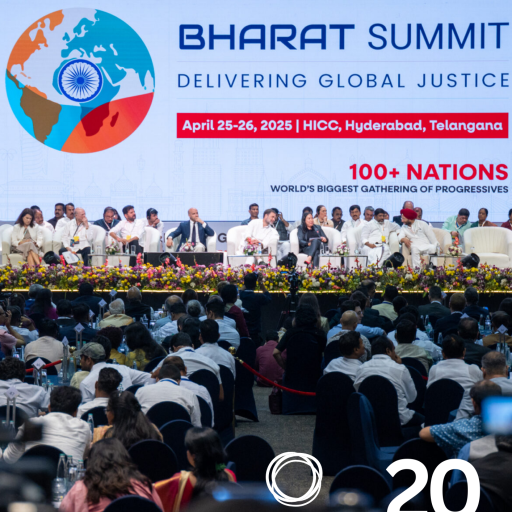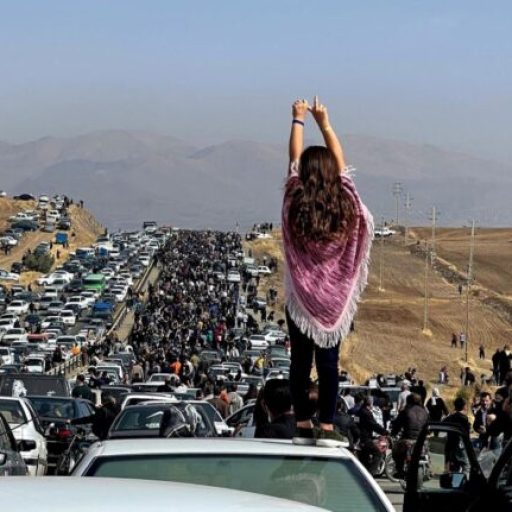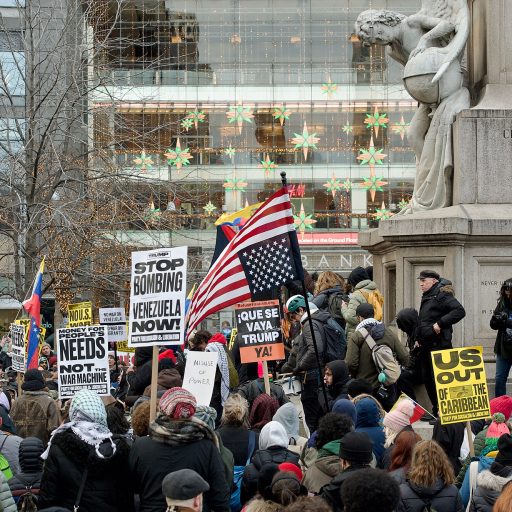1) Can you describe the obstacles that hamper your political work?
Wenceslao MANSOGO ALO, Secretary of International Relations: Our political work is hampered by many obstacles. Since 1979 the country has been run by a man who seized power in a coup and thinks that the entire country and the revenues from its natural resources (oil, gas, timber in particular) belong to him and has no intention of relinquishing power. He stated his intention to start the transition to democracy in 1990 but this process is going backwards. It was merely intended to get the international community off his back. The main obstacles we face include:
- Lack of financial resources needed to develop our basic activities. The meagre contributions paid by our executives are totally inadequate. The government only supports us financially as it sees fit when elections are held.
- The secretiveness of President Obiang’s regime: There is no political dialogue; no concerted action, no negotiations. What is more, the regime has set up pseudo-opposition parties that are designed to oppose the CPDS.
- There is no political campaigning except when elections are being held. We only have sporadic contact with our political base. We have no access to state media and the government prevents us from operating our own radio station.
- There is still widespread electoral fraud. Elections are always terribly frustrating for us. There have been 15 elections since 1993 and each of them has been more and more fraudulent: Elections are entirely administered by the regime; campaigning takes place without any freedom of expression or movement; there is no access to media; there are no credible international observers; no secret ballot; election results always show 99% support for the regime; there is little or no international reaction to this. Consequence: We are unable to gain institutional political positions that would enable us to provide a more visible, more effective opposition. The reform of electoral conditions is one of the fundamental issues dealt with by the political dialogue that we are proposing.
- The interest shown by developed countries in the energy resources of our country strengthens the dictatorship and weakens us considerably. Despite his international image, President Obiang will nevertheless be received by President Obama on an official visit next August.
- We are socially marginalised. The regime prevents us from undertaking any productive activities under normal conditions. The regime prevents us from working. We cannot work in the civil service and private companies will not hire employees unless they have “a party card”.
- Our activities have a low profile at an international level. This is a consequence of the points made above. Few people know anything about the difficult work that the CPDS does despite the harsh dictatorship that rules Equatorial Guinea
- Our personal concerns. When we or a close relative becomes ill we still don’t have adequate access to healthcare. Most senior CPDS staff have not had a health check for 20 years.
2) How can international aid assist the work you do?
W. M. ALO: International aid could assist us through various actions:
Financial assistance would enable us to work more actively inside the country and meet our core supporters more frequently; enable us to pay our contributions to the international organisations of which we are members; finance our international travel.
Exert pressure on President Obiang’s regime to open up fresh political dialogue with all the dynamic forces in society at large. See question 3.
Help us to raise our international profile by organising meetings between us and internationally important individuals and institutions, inviting and enabling us to attend international meetings and conferences and participating in any other initiative that is likely to help achieve this aim.
Offer international observers at the time of elections in order to reduce electoral fraud.
3) You recently held your 5th party congress. What results that will encourage political dialogue in Equatorial Guinea were achieved?
W. M. ALO: At the end of our 5th Congress we requested and obtained an audience with President Obiang. We asked for a new National Dialogue framework that would involve all the country’s dynamic forces and be open to the international community to be put in place without delay. The President accepted this in principle. We are currently working on a draft of a model framework and the issues that need to be tackled during the course of these meetings and we will submit this to the President in the next few days.
We also raised the problem of access to state media and the setting up of private media. The President also appeared receptive to this.
Against this backdrop, in March we plan to travel to Spain where most Equatorial Guinea exiles live in order to hold discussions with them and consider possible approaches to political collaboration.
We therefore expect all these promises and projects to materialise; but given the benefit of hindsight in our dealings with President Obiang, this is by no means certain.
4) Where do you think Equatorial Guinea will be in ten years’ time and what are its biggest challenges?
W. M. ALO: The next ten years are uncertain as far as Equatorial Guinea is concerned.
- President Obiang recently amended the constitution to make sure that he will be able to run for another two 7-year presidential terms. If he does so it is likely that the current stagnation, demagoguery and unfulfilled promises will continue if he remains head of state.
- He might die in office. If this happens, it is difficult to predict how power would evolve, his death would probably create a chaotic situation. There are internecine struggles for power (among his immediate family as well as in his political entourage). If this happens, the possibility of violent fratricidal disputes cannot be excluded.
- He might be removed from power. In this case it is highly likely that a new dictatorship would come to power.
It is highly likely that people are currently discreetly manoeuvring and calculating ways of securing the position of his eventual successor.
The main challenge is to succeed in establishing a national mood of political calm. The risk of a coup if President Obiang being deposed must be reduced (prevented). To achieve this, there is an urgent need to convince people of the need to set up constructive National Dialogue without delay and prepare for a genuine transition to democracy. The role of the international community could be decisive in this context.
National Dialogue would be used to negotiate issues of general political interest and set out preconditions:
- A General Amnesty Law that would allow the return of all exiles and the release of political prisoners where appropriate.
- The legalisation of political parties and independent civil society organisations.
- The legalisation of independent radio stations (CPDS has just submitted a repeat request for a licence for its station)
National Dialogue must result in the establishment of a Government of National Unity which will be tasked with organising free, transparent elections as well as setting up a constituent assembly.




![Headline: Hier bitte das Thema [ Headline] 24.10.25, Lucerne, Switzerland, Progressive Alliance PA women conference](https://progressive-alliance.info/wp-content/uploads/elementor/thumbs/MAW251024mw859033AdobeRGB-scaled-recq0qxu9kb6pncdi2i7wo6ttne03ppnu58zxxdc74.jpg)
![Headline: Hier bitte das Thema [ Headline] 25.10.25, Lucerne, Switzerland, Progressive Alliance PA women conference](https://progressive-alliance.info/wp-content/uploads/elementor/thumbs/MAW251025mw860402AdobeRGB-scaled-recs8kegm3kqlleif2kq512xsjz2qfl3t7kc0t0tts.jpg)